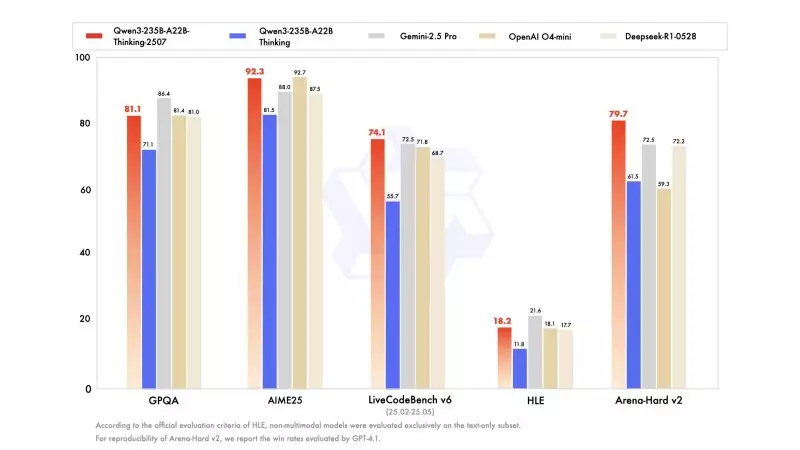The artificial intelligence landscape is witnessing an unprecedented surge of innovation, driven by the ambitions of tech giants eager to redefine what machines can accomplish. Among these players, Alibaba’s Qwen team has emerged as a formidable force, not just by releasing cutting-edge models but by fundamentally reshaping the approach to AI development. This strategic shift towards open-source, highly specialized models signals a new paradigm—one where transparency, customization, and enterprise readiness take center stage, challenging the dominance of proprietary giants like OpenAI and Google.
Breaking Conventional Barriers with Open-Source Dominance
Alibaba’s recent series of model releases is nothing short of revolutionary. The company didn’t just roll out a single flagship — it introduced a suite of four models, each optimized for distinct tasks and functionalities. This multi-model approach reflects a maturation in the AI ecosystem, moving beyond monolithic architectures towards modular, purpose-built solutions. The open nature of these models under the Apache 2.0 license offers organizations unmatched flexibility, allowing them to download, modify, and deploy without restrictions—a radical departure from the API-dependent, black-box models that have dominated the industry.
This move democratizes AI innovation. Smaller startups and large enterprises alike now have a robust alternative to proprietary solutions, fostering a competitive environment that could pressure industry leaders to improve transparency and accessibility. Alibaba’s strategy doesn’t merely aim for technological achievement but seeks to reshape the economic and ethical landscape of AI deployment.
The Power of Specialization: Tailored Models for Different Needs
Alibaba’s decision to develop separate models for reasoning, coding, and translation highlights a clear understanding of diverse enterprise demands. This compartmentalization enhances each model’s performance within its domain—an insightful response to the one-size-fits-all approach that often dilutes efficiency and effectiveness. For example, the release of Qwen3-235B-A22B-Thinking-2507, an advanced reasoning LLM, surpasses many competitors in problem-solving benchmarks, confirming that dedicated reasoning models can achieve remarkable accuracy and depth.
Similarly, the Qwen3-Coder-480B-A35B-Instruct is crafted for complex coding workflows, supporting an astonishing 1 million token context window—far beyond what GPT-4.1 offers—making it an invaluable asset for technical teams. The multilingual Qwen3-MT further illustrates Alibaba’s commitment to global inclusivity, supporting over 92 languages and emphasizing adaptability in real-world applications. This strategic diversification not only enhances performance but also prepares the ecosystem for a broad spectrum of use cases, from high-stakes decision-making in finance to nuanced language translation in global commerce.
Innovation with Ethical and Practical Implications
One of the most compelling aspects of Alibaba’s approach is the emphasis on transparency and practical usability. Providing models under the permissive Apache 2.0 license fosters a culture where organizations can maintain full control over their AI systems. This stands in stark contrast to the restrictive terms often seen with major proprietary models, which limit customization and raise concerns over data privacy and commercial dependency.
Furthermore, Alibaba’s models are designed for efficiency and scalability. The lightweight FP8 variant of their non-reasoning model demonstrates their commitment to optimizing performance on constrained hardware—an essential consideration for deploying AI in diverse environments. The economic implications are profound: organizations can now access high-quality AI without exorbitant costs or infrastructural overhauls, leveling the playing field and accelerating innovation across sectors.
Implications for the Future: A Shift Toward Open, Responsible AI
Alibaba’s bold open-source strategy signals a paradigm shift—favoring transparency, collaboration, and responsible deployment over secrecy and exclusivity. As more companies adopt similar approaches, the industry could see a move towards more ethical standards, better data governance, and increased user agency. The availability of high-performance, customizable models will enable enterprises to develop tailored solutions aligned with their specific needs and values, reducing reliance on opaque, proprietary systems.
It’s evident that Alibaba is not merely competing but striving to lead a new wave where AI is an open, accessible, and adaptable resource. This path encourages a future where innovation is governed by community effort and shared advancements, rather than proprietary lock-ins. In this landscape, the real winners are the organizations and users who gain enhanced control, privacy, and the capacity to develop AI that genuinely serves societal interests.
—
In the grand scheme of AI evolution, Alibaba’s recent endeavors underscore an unwavering belief: that democratization and specialization are the true catalysts for sustainable progress. As their models carve out new benchmarks and redefine what open-source AI can achieve, the industry must critically examine its reliance on closed, API-driven architectures and consider a future where transparency, community, and flexibility become the new norm. Alibaba’s strategic shift is not just a technological milestone but a bold statement of intent—one that could shape the contours of AI innovation for decades to come.


Leave a Reply